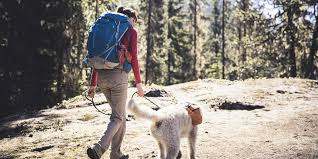It is not difficult to find out
why hiking is such an enviable pastime. Some hiking trails run across state
lines and cover a country's most eye-catching natural spots. Most people
already know that hiking comes with great physical demands such as walking for
hours with a rucksack of heavy supplies. Carrying a weighty load and walking
for miles in an open province are reasons why trekkers should study how to stay
secure during their hikes. This safety direct teaches experienced and new hikers
about common mistakes that hikers make, tips they must follow both during and before
a trek, trekking guidelines for families, and recommendation on what to do
after a hike. Hikers must arrange themselves well by familiarizing themselves
with most of the hazards and safety tips included so they can hike productively.
Common Errors Made on the
Trails
A mistake can cause minor
discomfort to hikers or it can cost them their lives. Several outdoor
adventurers make mistakes but the experienced and the greatest ones will study
from their accidents or stop them in total. Common hiking errors take place
from simple negligence like selecting the incorrect path or not bringing a map.
With a single error, hikers can lose numerous hours if they get lost hopelessly
or even lose thousands of dollars if they lose expensive safety equipment. The
best hikers will know how to stay away from distinctive mistakes that are dedicated
every day on the track.
Before Going on the Hike
Hiking is a fun, healthy, and
affordable activity that is open to anyone. Any person can get the most out of trekking
and stay safe at the same time. Some basic outdoor survival items comprise a weather
gear, map, lighter, water, food, and compass. Other helpful tips for hikers comprise
informing family or friends about a tour, taking a cell phone, and gaining information
about feasible natural dangers. Hikers should know about the place they want to
visit, utilize any outdoor experience, and take benefit of their common sense.
Long-distance trekking will enhance the risks of fatigue, dehydration, water
crossings, hazardous, insect-borne diseases contractions, hypothermia, and
animal attacks. Remaining alert and prepared as well as planning ahead are the key
ways that hikers can stop disasters from taking place.
During the Hike
Preparing for a hiking trip well
in advance is the most significant step for hikers. When they travel into
indefinite territories, they should know what they are getting themselves into
and take the highest precautions. Hikers are confident to have companions as
they will be traveling a long distance on foot and the outdoors will make them
very open to damage. One guideline is that hikers who plan to camp should not
do so in a half-mile of a road or tell strangers where they plan to travel.
Also, hikers should stay on marked trails so they can decrease their chances of
getting lost.

No comments:
Post a Comment